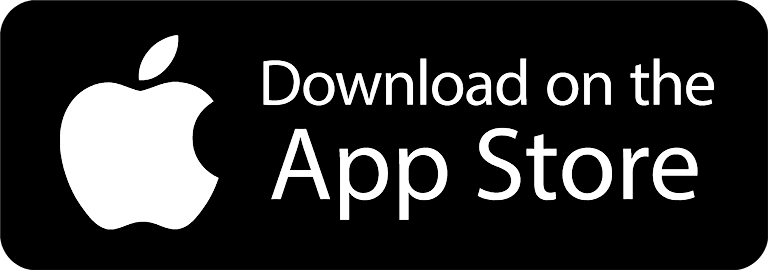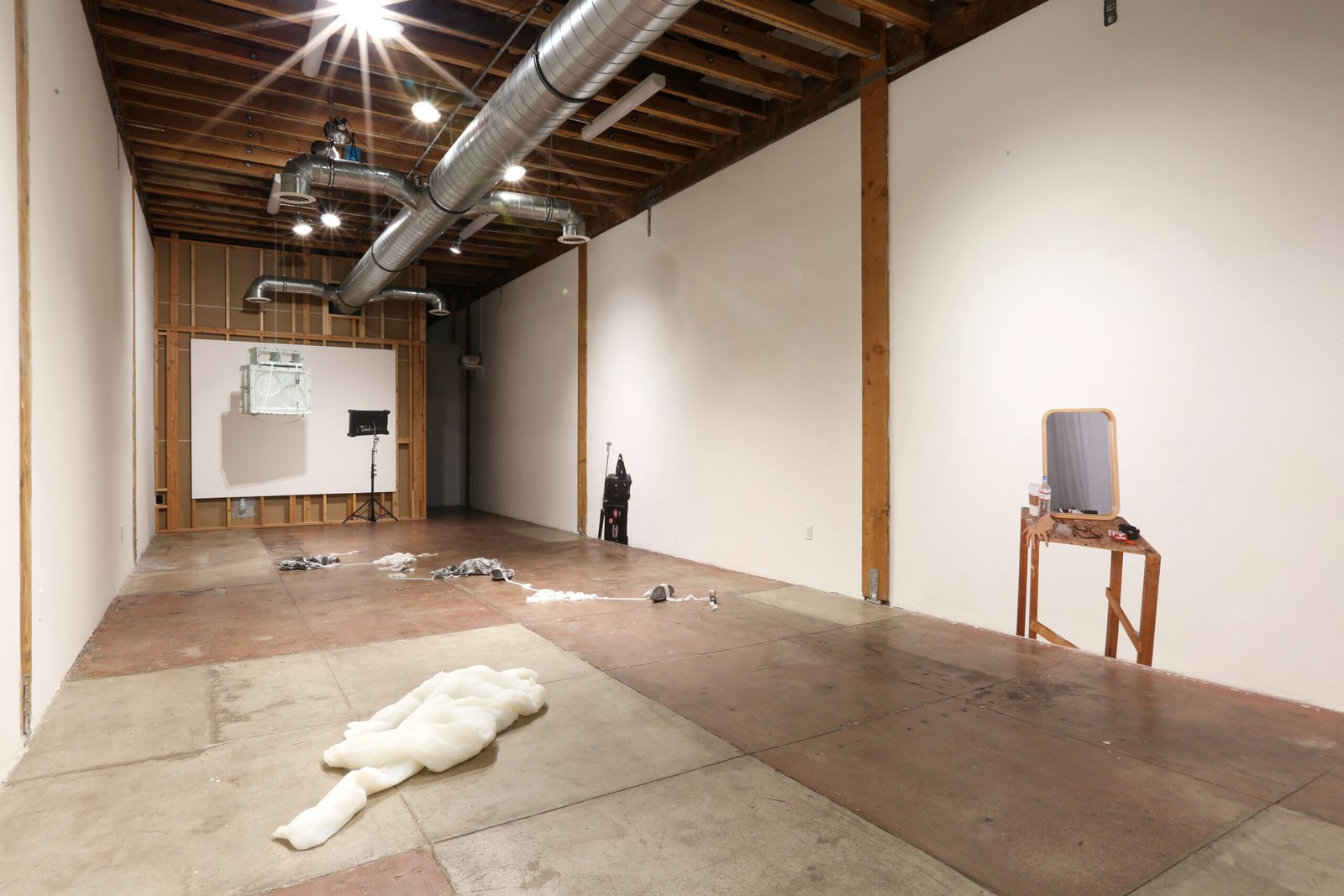
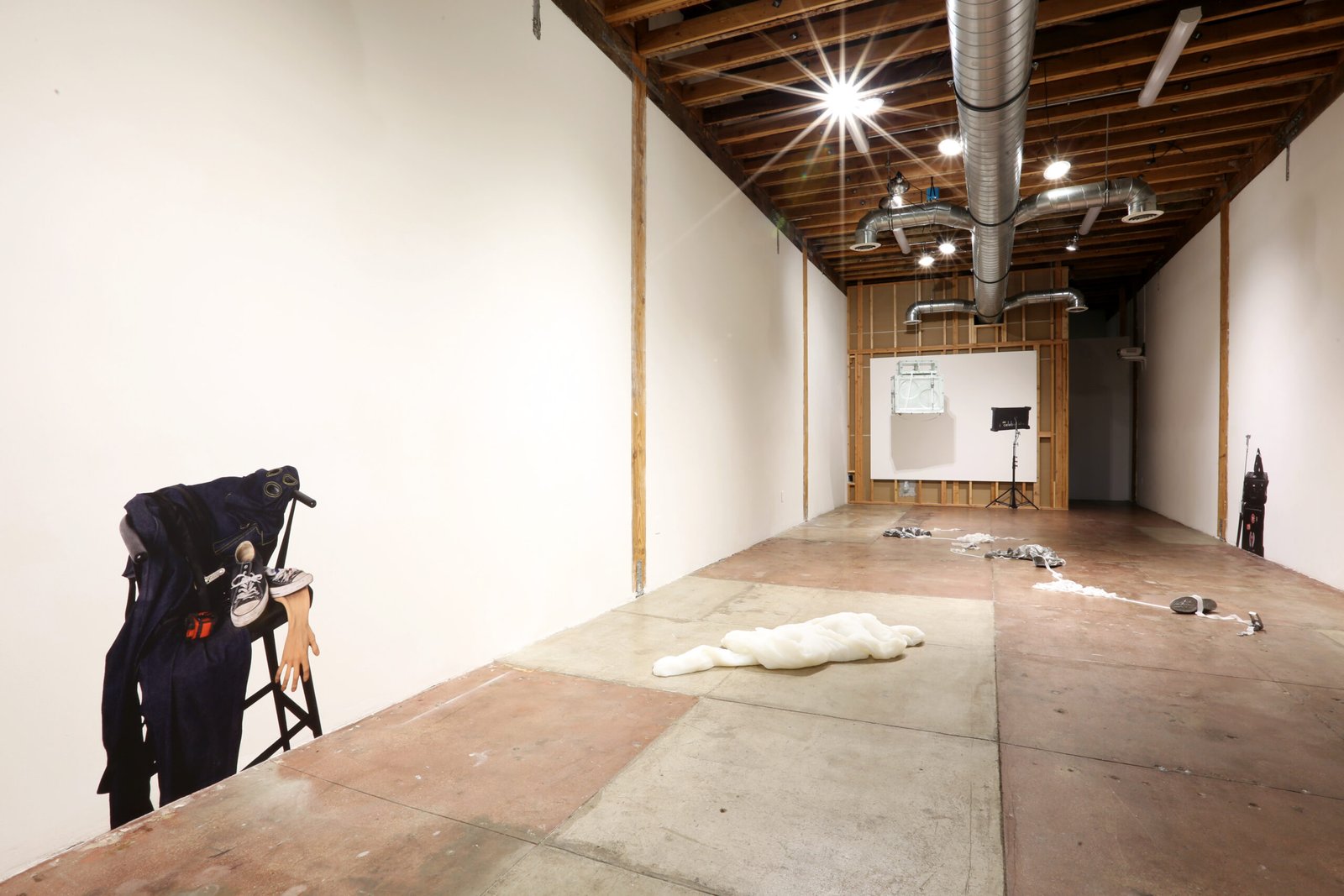
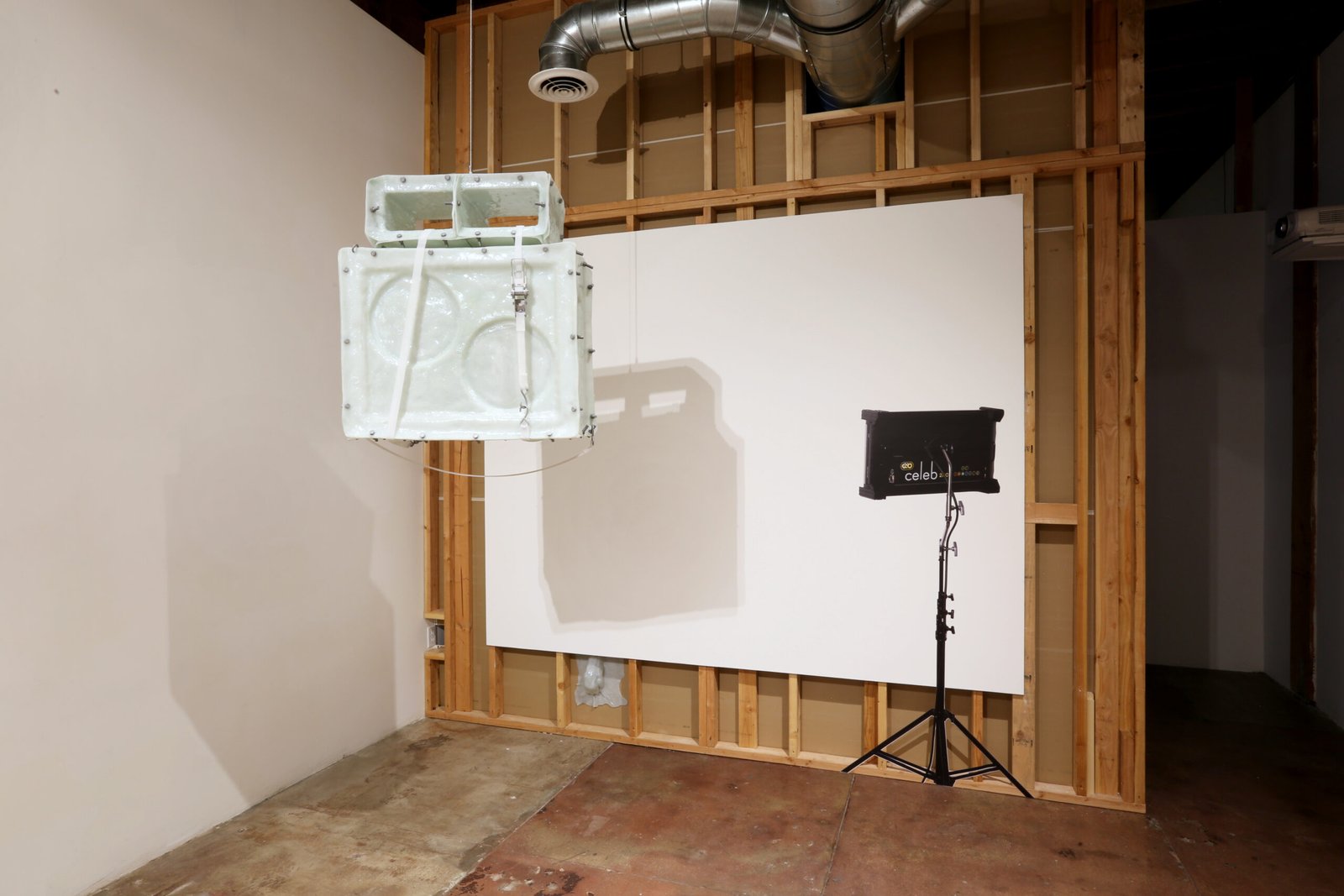
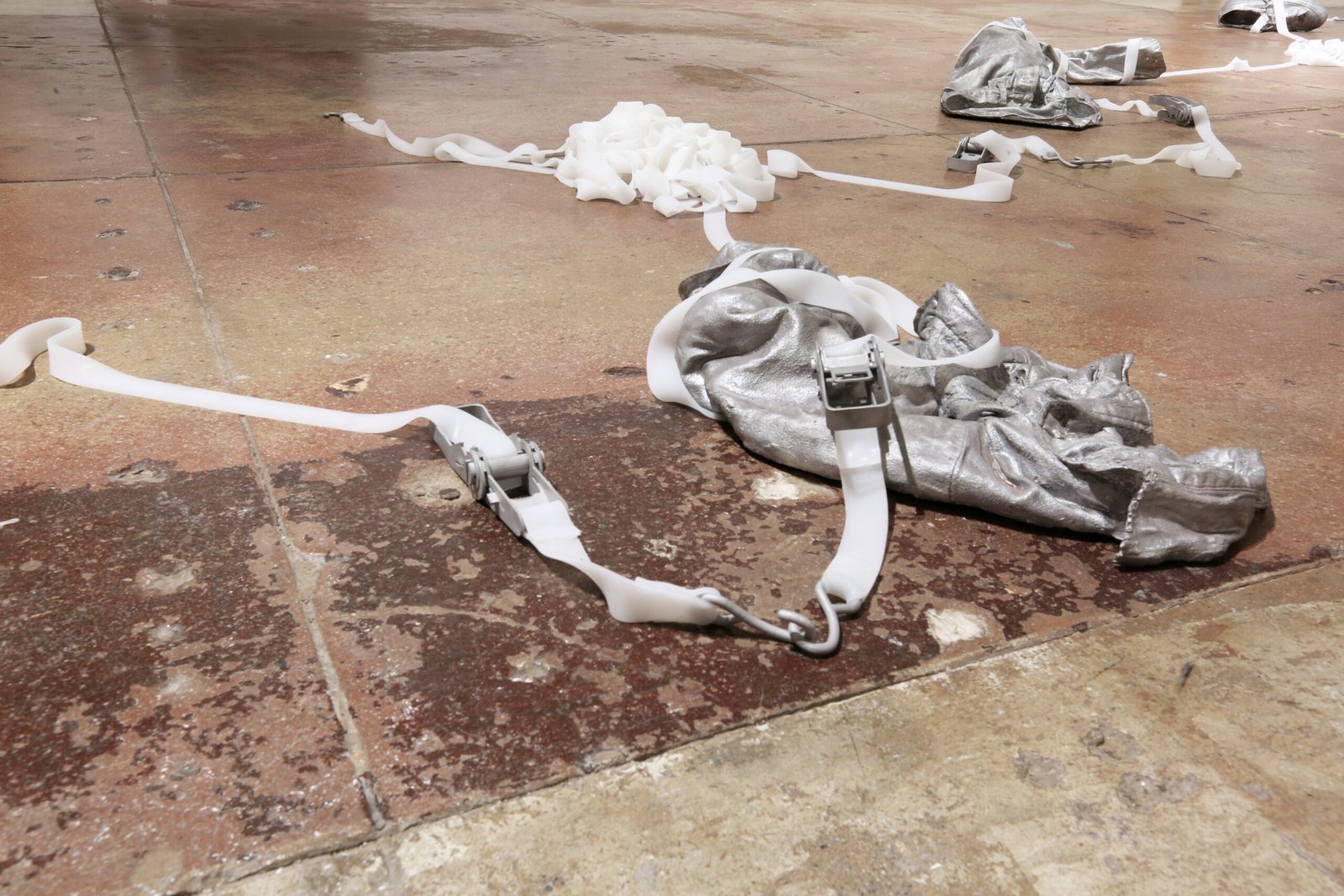
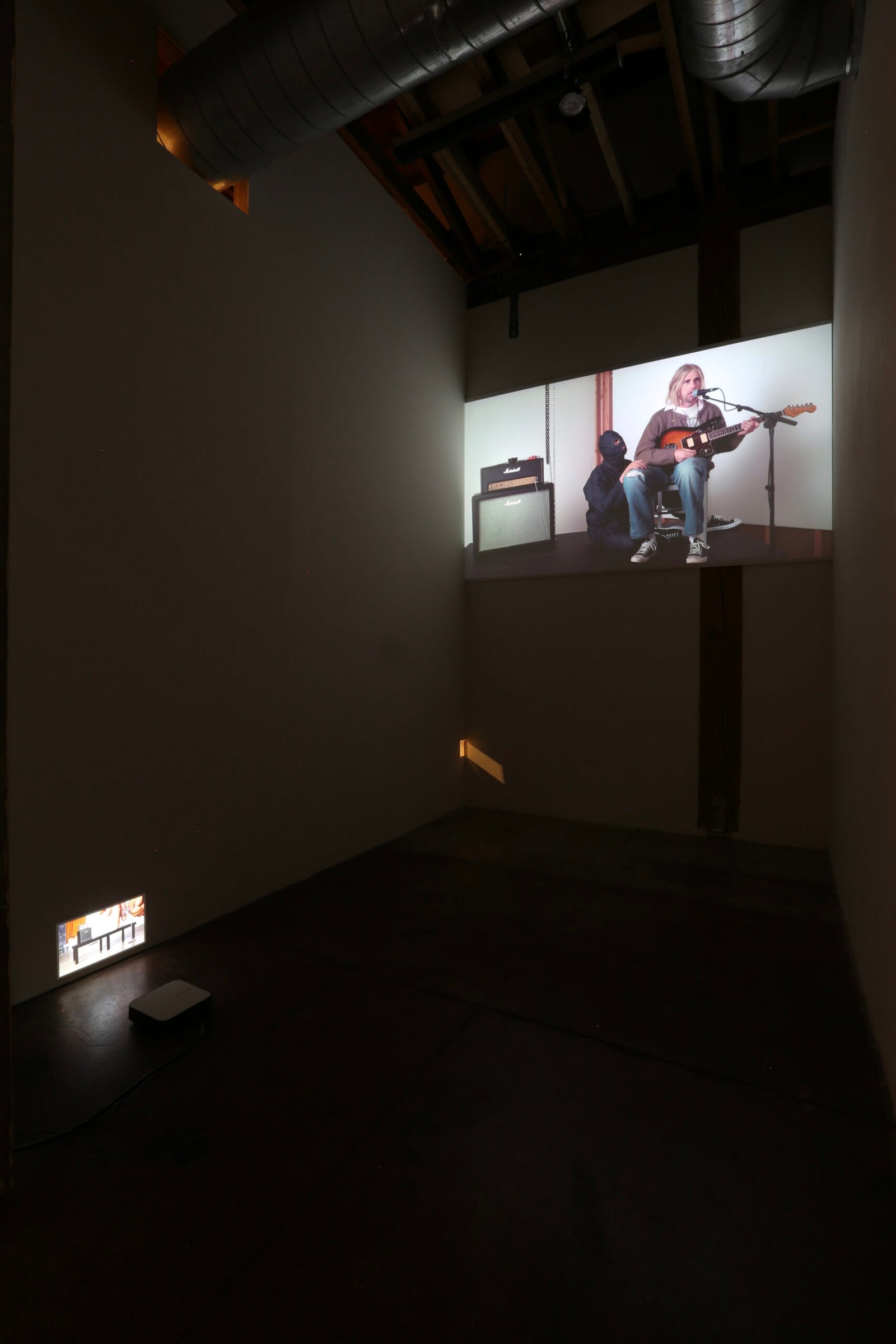
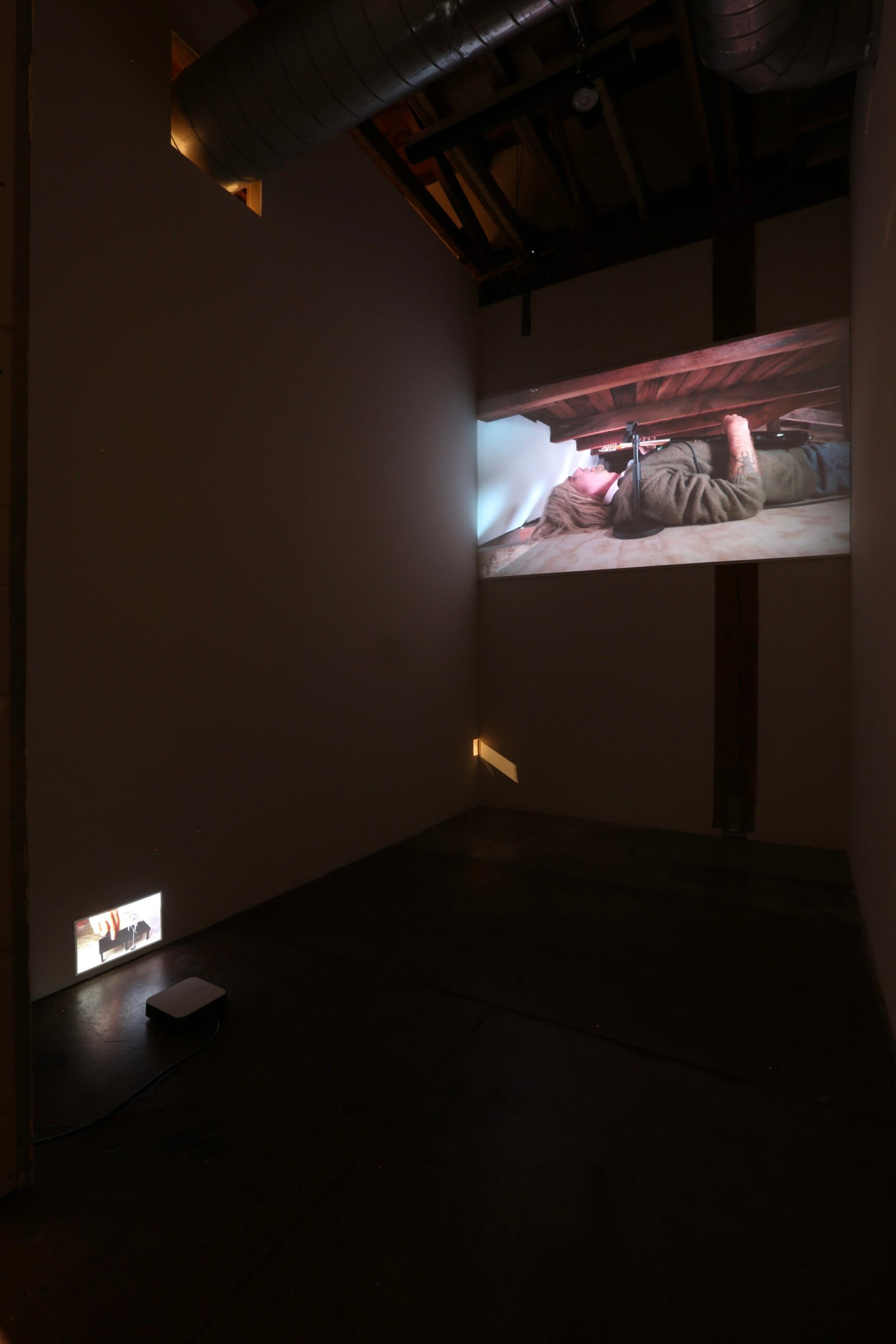
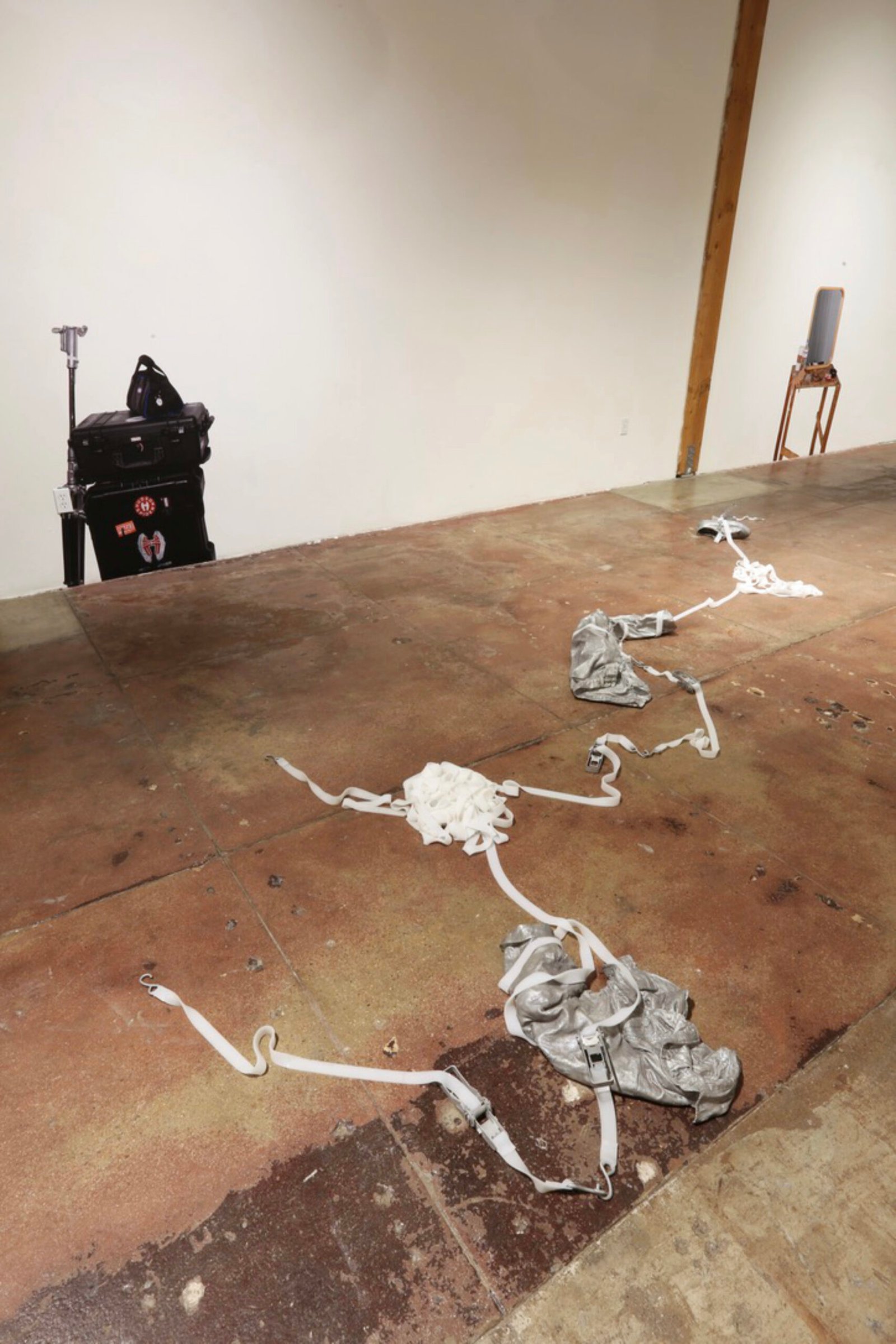
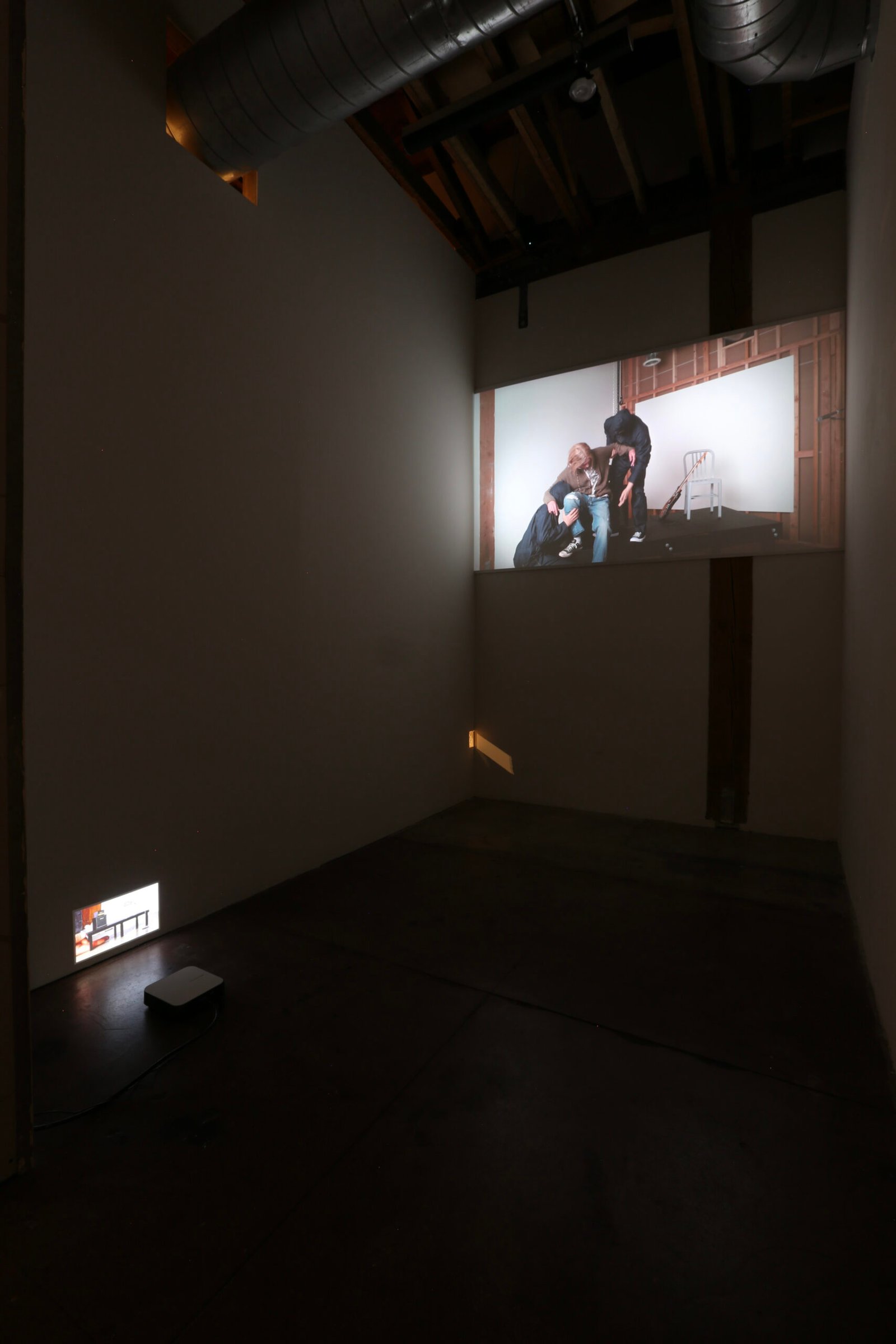
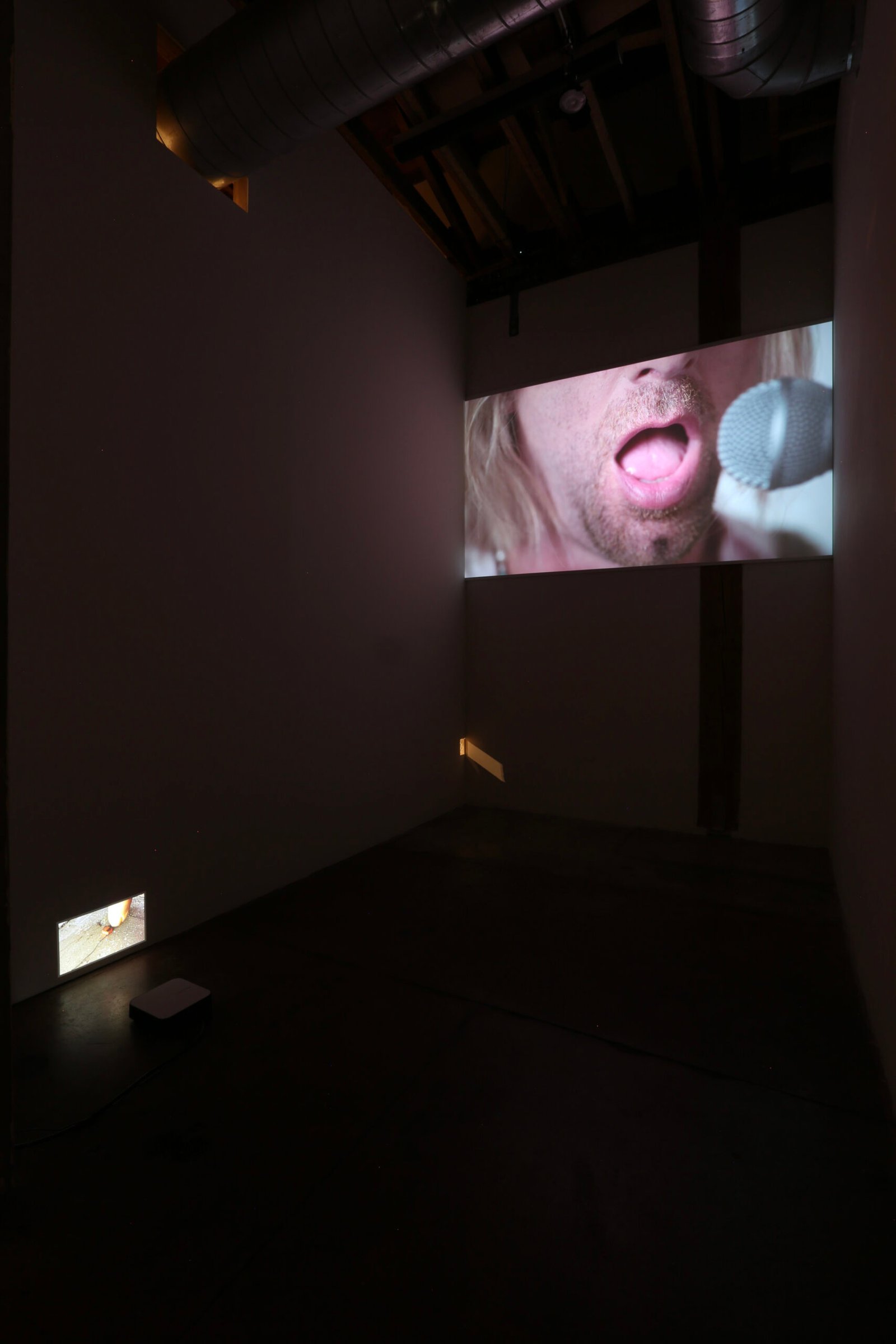
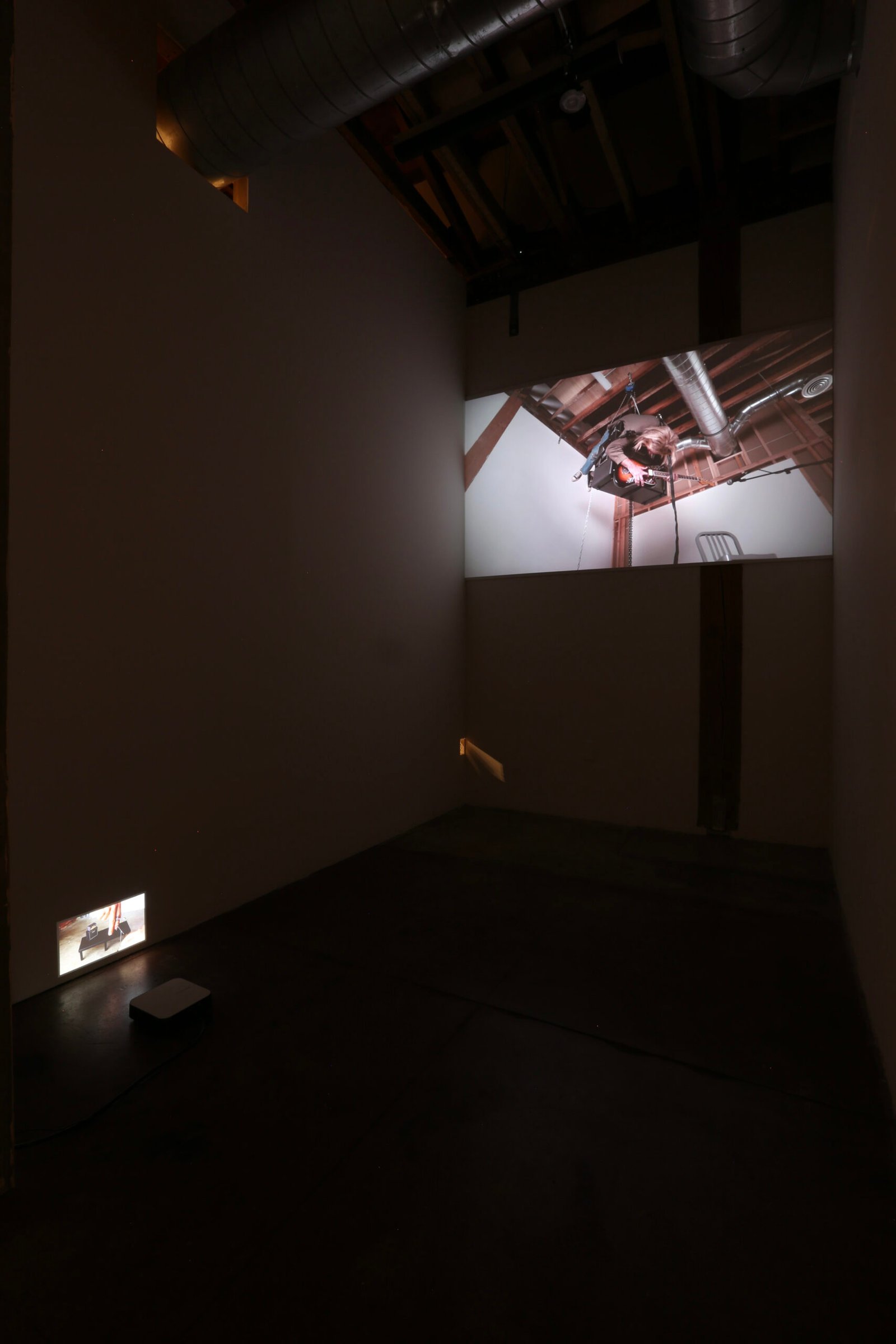
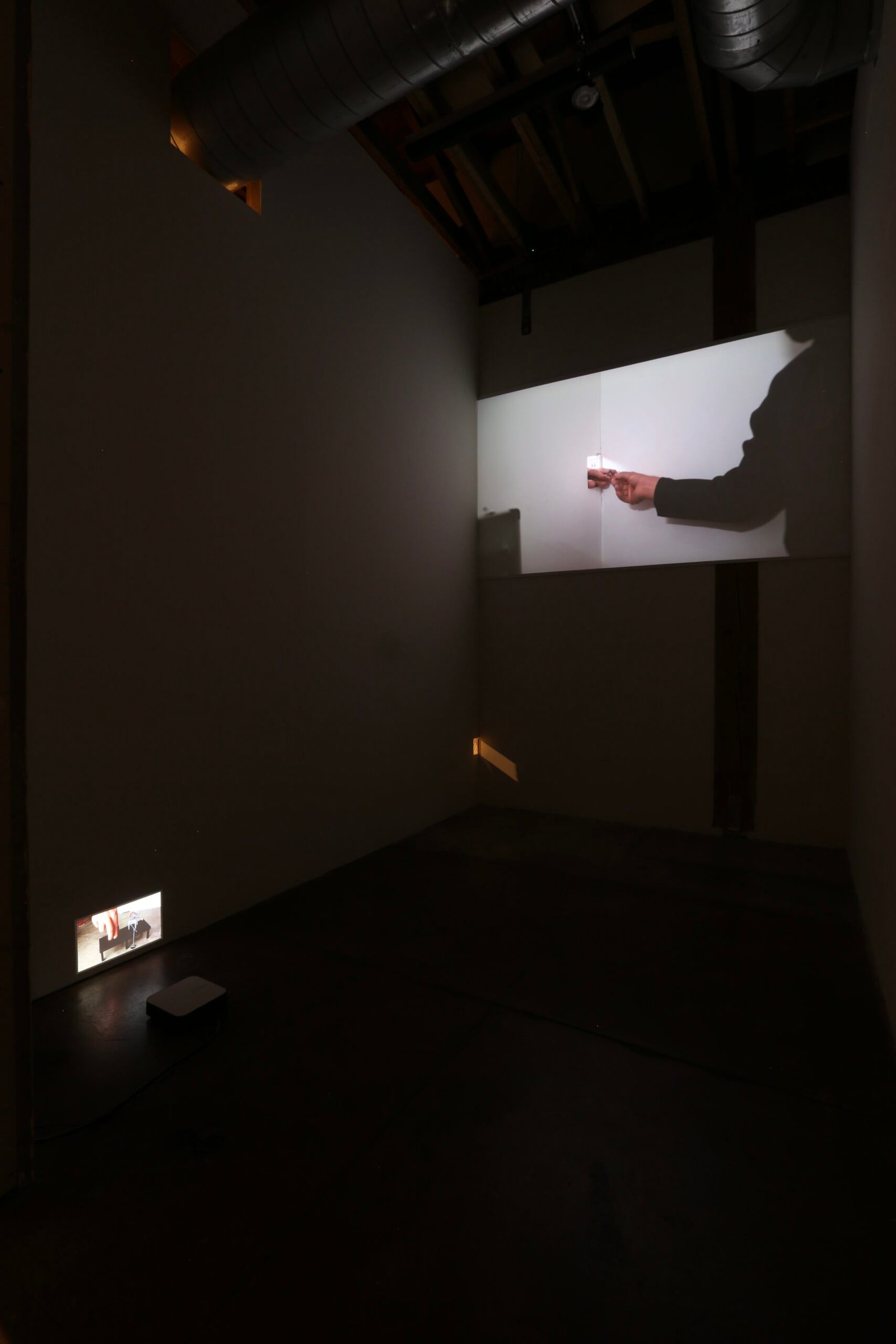
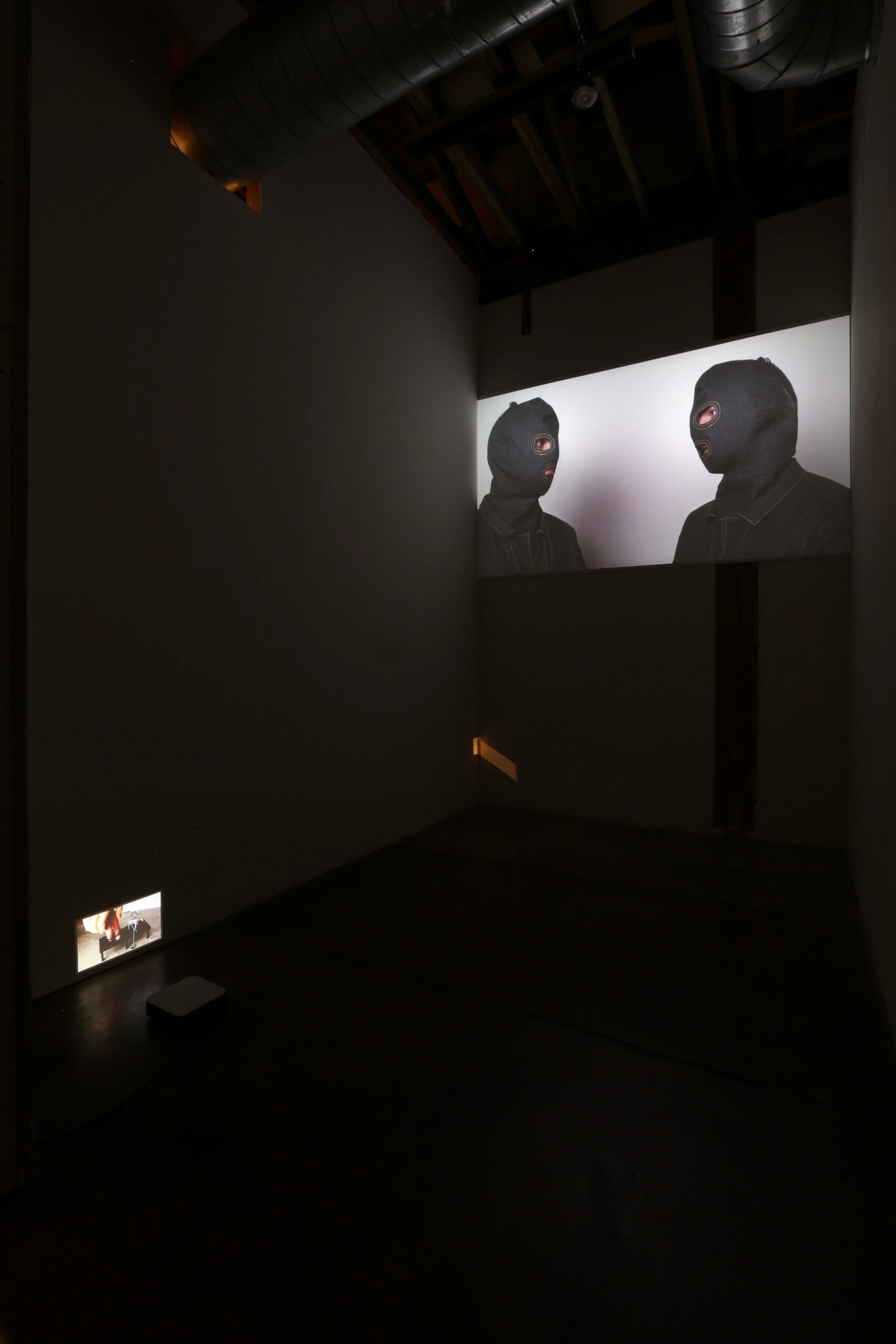
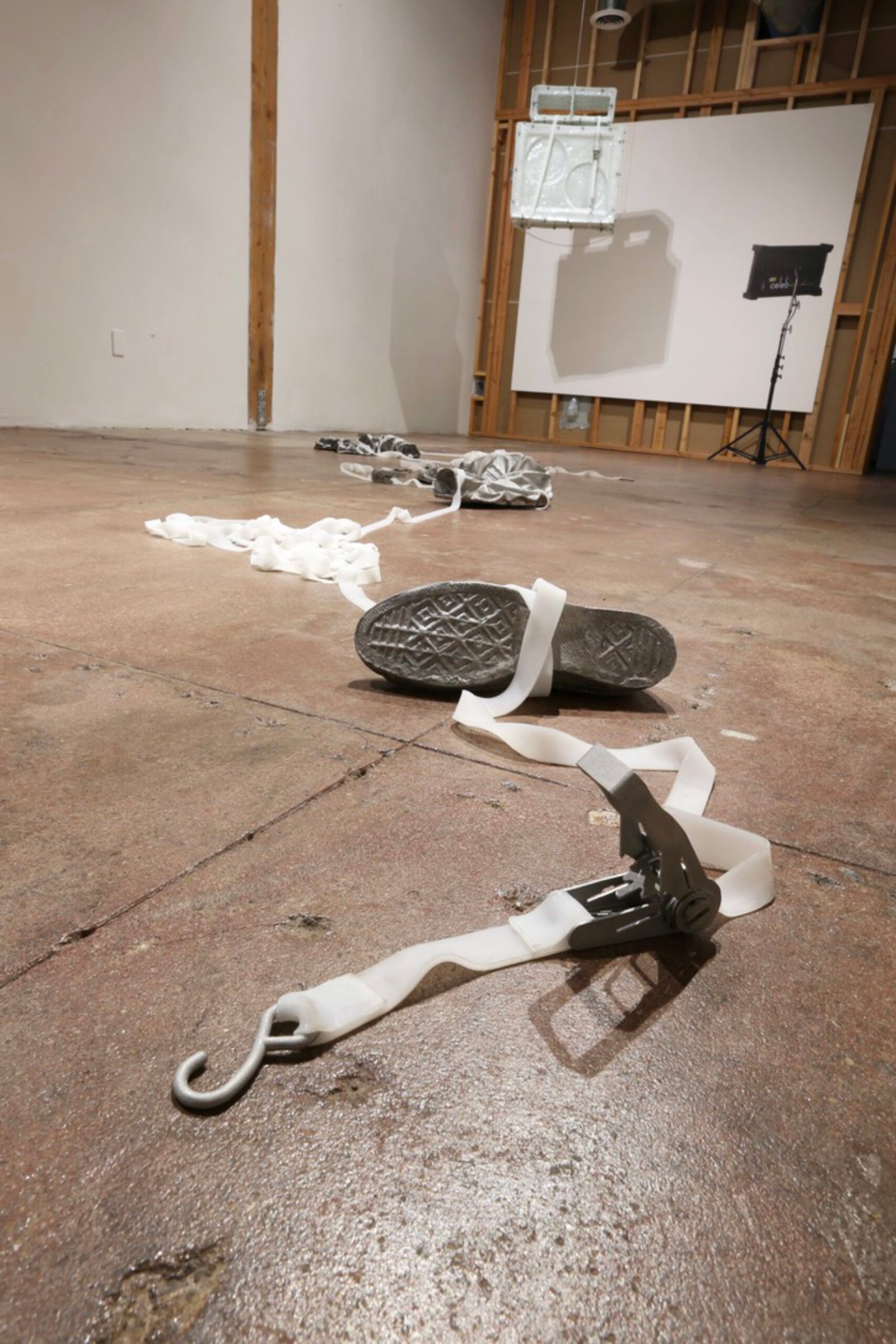
Deep, Fake. Staged begins with the end of Kurt Cobain (specifically the 1991 album Nevermind), and starts with a drained, looping reality this “popular” and “rebellious” figure of the anti-rockstar leaves behind. Or sets into motion. “All of our” actions flattened along the warp-speed disappearing act of any possible dissent: <>* (The revolution is televised. That’s why it never actually happens. At least we get to watch it, maybe even enjoy it….) Remember: nobody ever said it’s the revolution we wanted, it’s the one of our dreams¡ The whole world is watching (sleepily, right before bedtime)—and that’s the problem. But this problem has potential! We just need to get a good look at it, over there. After all, a surface is deeper on the outside (but farther on the inside).
Meanwhile, this is the first exhibition at the gallery where we have actually (physically) produced the work in the space of the gallery itself—the gallery appears as itself in the context of this work—as itself, but also as someone else, somewhere else: right here… for now…. (Like learning my mother-tongue again, for the first time: remembering how I forget what you remember.) With this staged perspective initially set-up as a way of paying-attention to how “the market”—and at this point, politics— automatively absorbs opposition, converting it into consumable form, “the exhibition,” as well as the gallery itself, are positioned as activities that are obviously always in reach of commodification (if not already in circulation: already sold-out). “The artist’s” acts of refusal and gestures of transgression are continually folded back into the very systems they oppose: any performance is already [recorded,] reenacted. Otherwise, they won’t make money. They just won’t cut it. After all, anything cutting-edge still needs to be brought to the center of attention, bought and sold, transacted-on… or else! Or else what? Or, else. (What is-is this, a ‘knock-knock’ joke?)
Knock, knock.
— Who’s there?
Nevermind.
— Nevermind who?
Exactly.
So, can any act of subversion or resistance ‘become famous’ without being totally consumed by the commercialism and capitalism acted against? Can any punk become popular without selling-out? Can any artist become “established” without becoming someone else, somewhere else? (Or is that exactly the point?)
Is an avant-garde possible anymore—was it ever?
Or is this all just a macabre charade? Nevermind.
….
Kurt, half conscious, performs a song on platform stage. His movements are puppeted by two gimps in denim suits*
Kert is nekid belaw staich
Kert is pul tup antu sait af platform bai kimbz
Kert is chrezd pei kimbz
Kert is pul tang tu cher ang staich
Kert is hangtut kitar
Uh kikered is plezd intu Kerts mauth
Kimbz lait kikered for Kert
Kert achutz th’ nops ang th’ amp wedh helb vrum kimbz
Wung kimbz asizd Kert ang sitring up ing cher wedh kitar
Thi uthor kimb wogz tu thi smol rum ang plux ing kitar bedl
Bag ang th’ staich, Kert bikingz streging sinkl kordz ang th’ kitar
Ing smol rum, kimb bresis ang tibresis kitar bedl
Kert bikings sinking intu meikrofon
This tre akshungs meik up th’ performungs
This kontinuus vor a waid
__________
* Eve Kosofsky Sedgwick, “Paranoid Reading and Reparative Reading, or, You’re So Paranoid, You Probably Think This Essay Is About You,” in Touching Feeling: Affect, Pedagogy, Performativity (Durham, NC: Duke University Press, 2003), 123–151.

